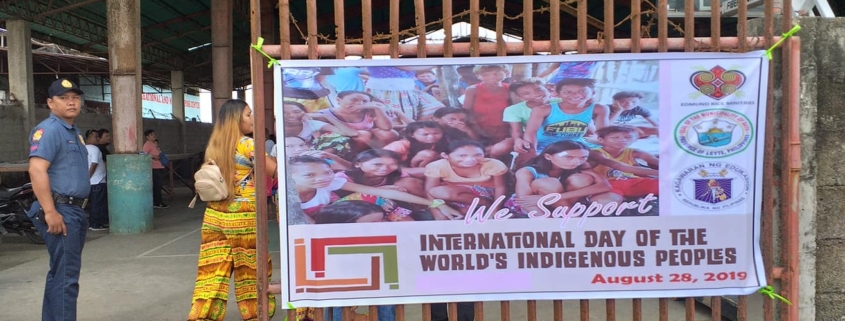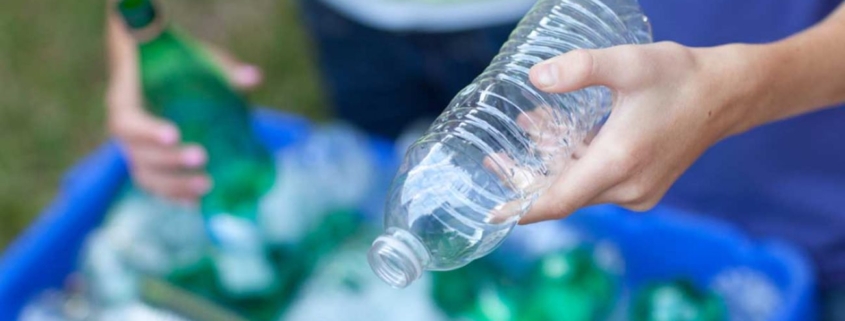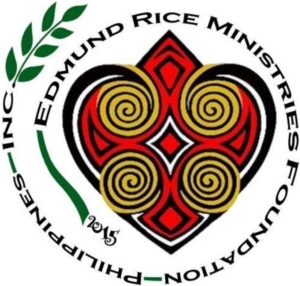End of Project Evaluation for the Sama-badjao Women’s Livelihood and Community WASH project
/in News, News Featured/by Cresanto SabanpanThe Sama-badjao Livelihood and Community WASH project started out as one-year project in Dolho, Bato, Leyte, Philippines. Funded by Misean Cara through the assistance of Edmund Rice Development, a second cycle with a 3-year term was implemented in recognition of the fact that changes do not happen overnight. Since 2018, ERMFPI has worked with the Sama-badjao community and has established a good working relationship wherein significant victories, as well as challenges, were garnered along the way. Among those notable ones are the strengthening of the Sama-badjao women’s group institution building and enterprise development, increased awareness among community members in sanitation and solid waste management, improved well-being and development of skills of the Sama-badjao families. ERMFPI has also facilitated linkages and networks of allies of the Badajo community- local government units, local project partners and other people’s organizations within and outside Bato, Leyte.
With this in mind, the awareness of the society at large of the rights of the Sama-badjaos, having their own culture be respected and protected remains to be a challenge. After ERMFPI’s exit from the community, it relies on the consolation that the Sama-badjaos are now able to push forward the advocacy for social acceptance.
On-going implementation of the Developmental Supplementary Feeding (DSF) initiatives with Values Formation sessions for the families in Brgy. Carreta and Tinago
/in News, News Featured/by Cresanto Sabanpan“While ERMFPI recognizes the importance of sustainability in all its projects, the organization is also conscious of the fact that there are immediate needs that must be addressed in order to pave the way for long-term solutions— hence, the need for the DSF initiative”
– Josefa Pizon, ERM-Cebu Program Leader
The root cause of children being out of school was seen to be Family Poverty through lack of Livelihood. Lack of means of family income can lead to the family living off light snacks and when food is available. Having sufficient food for one nutritious meal a day can be a challenge. This results in the child going to school hungry and lacking motivation to learn. Following the school lunch break, the hungry child finds it difficult to face the afternoon lessons and may not return to class. Instances of whole-day absenteeism follow and this inevitably leads to dropping out of schooling altogether. The regular feeding activity is considered “developmental” in that it involves the local community in preparing the meals and relies on the in-kind contributions of local partners- government, private individuals, parish churches and religious congregations. The feeding is “supplementary” in the sense that the activity does not take away the primary responsibility of parents for the daily feeding of their children.
As of today, 200 children from focal communities are regularly being fed once a day with nutritious meals. These children were organized into Kiddie Health Patrol where regular sessions on health and hygiene, waste segregation were provided to them on weekends. These children were also regularly monitored on their BMIs by the Barangay Nurses.
In partnership with the Barangay Nutrition Councils of Brgy. Carreta and Tinago, with ERMFPI as a member, alternating lists of nutritious meal menus are prepared and given to families in charge of the feeding activity. The Capucchin Sisters of the Holy Family and Servant Sisters of the Holy Spirit have also joined the collective action to fight hunger and have been one of the major supporters of the DSF initiative.
ERMFPI celebrates the International Day of the World’s Indigenous Peoples with the Sama-badjaos
/in News, News Featured/by Cresanto SabanpanBato, Leyte, Philippines (Aug. 26, 2022)- Led by the Sama-badjaos themselves, the Indigenous People’s day celebration received tremendous support as it was attended by 25 Department of Education Representatives, 25 Municipality of Bato Local Government Representatives, 40 teachers and staff of Bato National High School and 8 ERMFPI staff including the Foundation President.
Clean-up Drive at Sama-Badjao Community in preparation for the mangrove propagules planting
/in News, News Featured/by Cresanto Sabanpan“The long-term goal is to have a healthy mangrove biodiversity within the Sama-badjao community that would provide eco-friendly livelihood activities that may enhance food supply and additional income to the people. In complement with the LGU of Bato, the mangrove area will soon rise as an eco-supportive business enterprise(s) run by the communities alongside the mangrove area through initiating discussion for an eco-tourism enterprise.”
– Dominic Carangue, ERMFPI Programs Head
Complementing the Sama-badjao Women’s Livelihood and Community WASH project, is a one year Mangrove Rehabilitation project that started last January 2022. In collaboration with Bato LGU’s MENRO, the long term goal is to have healthy mangrove biodiversity within the Sama-badjao community that would provide eco-friendly livelihood activities that may enhance food supply and supplementary income to the people.
As part of Climate Justice Sustainable Agriculture and Biodiversity strategies, 228 people coming from different organizations and backgrounds worked hand-in-hand for the clean-up drive where the mangroves are situated within the Sama-badjao community. Members of Tau Gamma Phi-Bato Chapter, Alpha Kappa Rho-Bato Chapter, Sama-badjao Home-based Women’s Association, Sama-Badjao Youths, BLGU of Dolho and Daang-Lungsod and MLGU of Bato, Leyte worked tirelessly to clean up the area in preparation for the planting of the mangrove propagules. “Although this project is short lived, I am confident that the Sama-badjaos themselves will carry on this initiative. ERFMFPI has been with them for over 4 years, and we have seen a significant change in their behaviour in such a way that they are now regularly cleaning their yards”, these were the optimistic words of the project Community Development Facilitator – Mr. Rodrigo Taliser, Jr.
The final date for the mangrove propagule planting will have to be set together with Bato LGU MENRO, as technical assistance is needed to ensure that efforts will bear the intended results. A “Bantay Bakhaw” volunteers will also be organized once the mangrove nursery is up and running to protect against illegal activities that would derail mangrove rehabilitation and biodiversity enhancement.
Trash for Cash Initiatives in Brgy. Carreta and Tinago, Cebu City
/in News, News Featured/by Cresanto SabanpanBeing surrounded by tombs, the Carreta Cemetery is not an ideal place to raise children nor an ideal place to build a home. In addition to poor sanitation practices and improper waste management, bacterial pathogens linger in water surfaces and groundwater. Albeit these hazards, people have coalesced in this area in desperation for a place to live. Barangay Tinago is no different. Adjacent to the major port areas of Cebu City, proper waste disposal becomes very problematic especially since it is the point of entry for all people coming in to Cebu City.
Earlier this year, ERM Cebu launched the “Trash for Cash” initiative under the Health Education for Family Development component of the C.E.B.U. Families project to motivate community members to be environmentally conscious while earning money at the same time. As of this writing, it has organized a total of 150 families to join the cause in the fight against deceases caused by improper hygiene and sanitation and in making their communities a better place to live.
ERMFPI received positive response from the barangay councils of the respective areas wherein local officials were the ones leading and encouraging the people to participate in these activities. Residents in the two barangays were taught how to segregate wastes and were able to collect a significant number of recyclable materials. They were encouraged to make some of the bottles collected into garden pots for their hanging gardens. They were provided with soils and seeds of vegetables and herbs for their community-owned sustainable garden.
Conscious of the people’s day-to-day necessities, ERMFPI has also managed to gather donations of canned goods including sacks of rice from partners around the metro. They were handed to the families who have joined the activity as part of the incentive mechanism in the effort towards the realization of the project.
Our Address
ER House
National Highway, Maria Clara, Maasin City
Tel No. : (63)(53)5709427
4th Floor Cebu Caritas Bldg
P. Gomez St., Brgy Sto. Nino, Cebu City
Tel No. : (63)(32)2637422
Office Hours
- Monday-Friday 8am – 5pm







